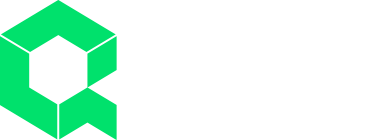As environmental sustainability continues to take centre stage across industries, the logistics sector is stepping up its game. We’re proud to have been a part of the BILOG project, an initiative spearheaded by the VIL Flanders Innovation Cluster for Logistics, which focused on leveraging business intelligence in logistics. The project explored the use of business intelligence in logistics, with CO₂ reporting as a key application, developed as a proof of concept (POC) within the projects scope. Alongside key partners like TLCC, Altrea Logistics, ZF Group, and Hasselt University, this project marks an important step toward creating a more sustainable future for the logistics industry.
Addressing the CSRD with innovative business intelligence
One of the most significant drivers behind this initiative is the Corporate Sustainability Reporting Directive (CSRD), a European Union regulation that mandates companies to report on their environmental, social, and governance (ESG) performance. While not all businesses must comply with every aspect of the CSRD Directive, many transportation and logistics companies are already obligated to track and report their CO₂ emissions under Scope 3, and provide this data to their customers.
Scope 1: Direct emissions
Scope 2: Energy usage, to the more intricate;
Scope 3: Supply chain-related emissions.
The BILOG project’s proof of concept focused on how Business Intelligence (BI) tools can help companies seamlessly track, calculate, and report on these emissions, laying the groundwork for compliant and efficient CO₂ reporting.
Qargo’s role in the BILOG Project: A proof of concept for the future
Using our Transport Management System data combined with fuel consumption metrics from Transics (ZF Group), we were able to produce an emissions report based on real-world operational data. This report contributed to the development of a CO₂ reporting model that offers a practical template for logistics companies to adopt to meet their CSRD reporting requirements.
Key takeaways from the project include:
Data quality is paramount: Granular and accurate data is essential for CO₂ emissions tracking such as detailed vehicle mileage and fuel usage; which is what our TMS collects from fleet metrics.
Data governance is critical: Proper fleet management and accurate data governance systems are non-negotiable for correct CO₂ reporting. Accurate planning using correct vehicle measurements provide a strong foundation for calculations. Without a strong governance framework, sustainability reporting becomes flawed.
The GLEC framework: The project highlighted the importance of using the Global Logistics Emissions Council (GLEC) Framework to prepare reports that align with CSRD standards. This globally recognised framework streamlines the complex task of emissions calculations for logistics operations.
Collaboration is key: The partnership with companies like TLCC accelerated the project's progress, demonstrating that industry-wide collaboration is crucial for creating solutions that work for everyone.
Meeting the challenges of CSRD emissions reporting
One of the most challenging aspects of CSRD compliance for logistics companies is emissions reporting across the entire value chain, including direct operations, suppliers and subcontractors. The BILOG project demonstrated how Qargo can help tackling this challenge using modeled CO₂ calculations, based on truck type, for downstream and upstream operations; while calculating direct operations with actual fuel usage data.
The model we helped develop provides logistics companies with a framework for tracking and reporting emissions, not just for their own fleet, but across their entire supply chain.

Preparing for a sustainable future
As the logistics sector continues to adapt to regulatory changes, projects like BILOG demonstrate the critical role that technology and data-driven solutions will play in ensuring compliance and promoting sustainability. We’re excited to be at the forefront of this transformation, providing the tools and expertise needed to help companies meet their sustainability goals and comply with regulations like CSRD.
Leveraging insights from the BILOG project, we’ve also taken a step forward in supporting our customers with in-platform emissions calculations. With Qargo’s TMS, transport businesses can now calculate CO₂ emissions at both the order and trip level, making sustainability reporting easier than ever. Stay tuned for all the details of this groundbreaking new feature later this week.
Through collaboration, innovation, and a commitment to sustainable practices, we’re building a future where logistics is not just efficient, but also environmentally responsible.
Want to learn more about how Qargo can help your company improve its sustainability reporting needs? Reach out to us today!

